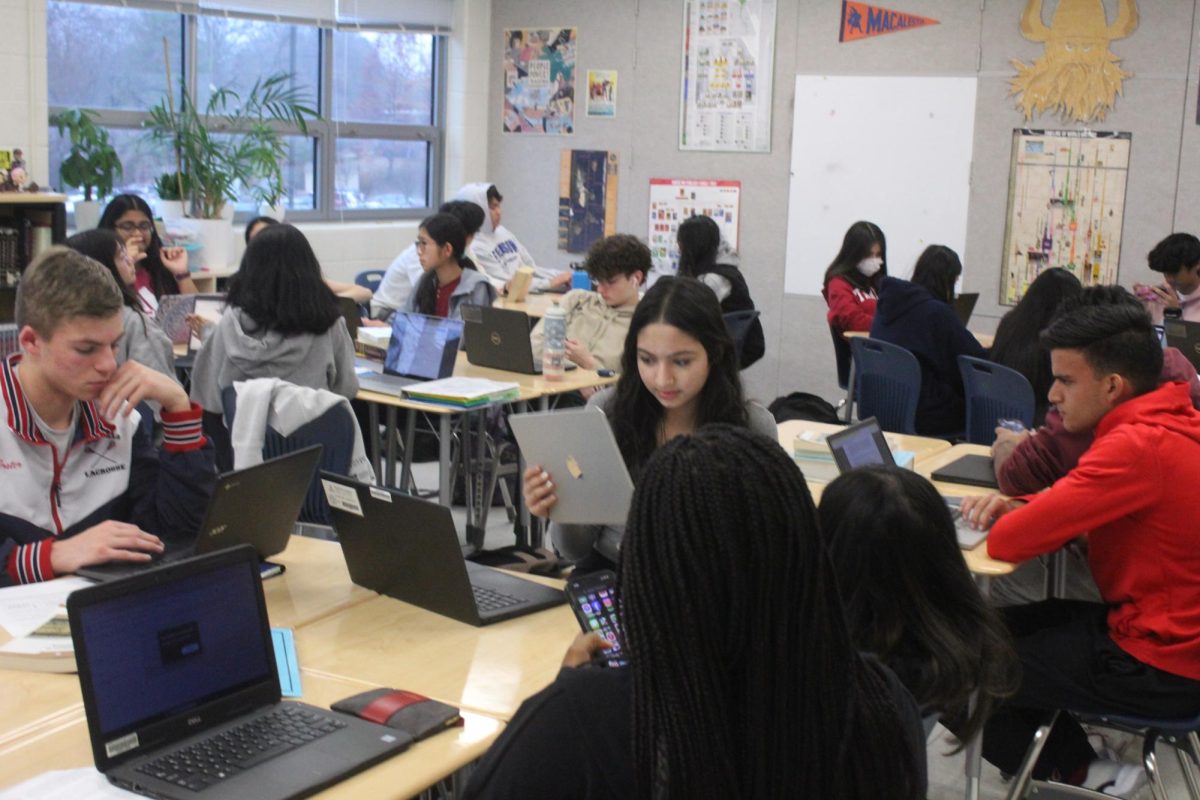In the Nov. edition of NewsYouChoose , Jefferson announced the introduction of catch-up days, where students have the opportunity to make up missing assignments or work on upcoming ones. This year’s catch-up days are currently set to take place on Dec. 11, March 18, and April 22.
Every quarter, one Monday anchor day will be designated as a day for students to meet with their teachers, ask questions, and relieve some of their stress. The idea has been toyed with for some time and is just being implemented into the schedule.
“It was something that started to be discussed last year by our innovation team,” principal Ann Bonitatibus said. “We had talked about looking at second semester, especially, as a way of rethinking Mondays and anchor days.”
The inspiration for catch-up days originated from asynchronous Mondays during the coronavirus pandemic when instruction was only given in person from Tuesday through Friday.
“We found that there was not a significant change in student performance when Mondays were used for other reasons, such as downtime or office hours,” Bonitatibus said. “The question then became, ‘Do we need to squeeze instruction on Mondays through seven periods, or can we start thinking through Mondays in more innovative ways?’”
Catch-up days are only the first step in the improvements coming up to provide opportunities for both teachers and students to have a day to prepare for the week.
“We need to try different approaches to understand the work culture and balance that there is,” Bonitatibus said. “I don’t think that there is just one thing that solves a problem, and if we could find a ‘best practices’ combination of things, then we’ll be in a good place.”
However, with catch-up days also comes the need for student responsibility and accountability.
“We need a commitment from students that they’re going to use this time, and I think that’s where there is going to be a responsibility placed upon students,” said Bonitatibus. “If we find that students are using this time in a way that is not intended, then it’s clear that we need to look into other solutions.”
Student groups and voices were heard through the development of these catch-up days; they were, in fact, one of the most essential parts of this whole process.
“I want to know what students have to say and what their interests are,” Bonitatibus said. “Being able to take these voices and these opinions back to faculty shows that student voices mean something and it’s not just the administrator’s voice that matters.”
In addition, the combined student groups of SPAC, SGA, and MHC helped influence logistics, such as the specific dates of these catch-up days.
“[The students] didn’t want these days to be the very last week, because they felt that it would push things onto the last week and place extra strain when pressure snowballed,” communications support specialist Michael Roth said.
The hope is that catch-up days will provide an improvement to the Jefferson atmosphere for both staff and students.
“I’m really looking forward to the possibility that if students and staff are finding that the time is well spent, that we could really capitalize on it,” Bonitatibus said. “[They] could make a meaningful difference in teaching and learning than some of the more traditional ways.”

